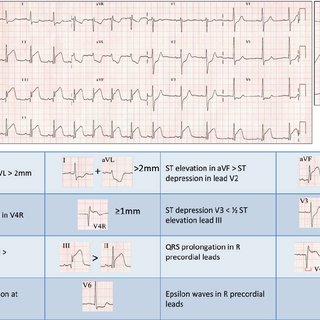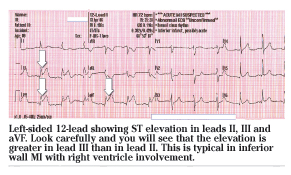
A large part of cardiac arrest is caused by an infarct. When there is an infarct, the heart stops functioning. The heart has no chance to pump blood and nutrients to all the vital organs. It then starts pumping blood to the lungs and the brain in an effort to make up for the shortage.
Cardiac infarct is a problem that occurs when a blockage occurs between two blood vessels. The heart can have as little as one or two arteries that block and more than one at the same time. Once a blockage is found the heart starts to work harder, and more blood is pumped to help fill the void. The result is that the oxygen and other nutrients are unable to get to all of the vital organs, and there is a risk of infection or hemorrhage.
In most patients the blockage will go away on its own within 24 hours, but if it does not you can expect that blood flow to stop. This is what is called a ventricular infarction. You may hear a popping sound like that from your chest. If you do not feel chest pain, you will not be able to tell whether this is ventricular infarction. There is nothing to indicate whether or not you have an infarct on auscultation, so an EKG may be your only way to determine whether you are having a heart attack or not.
If a ventricular infarction is left untreated, it can cause death. You need to get it treated as soon as possible because it can cause a lot of problems in the long run. Most people who have had an infarct will experience symptoms such as pain, difficulty breathing, chest discomfort, nausea, dizziness, fainting, lightheadedness, and loss of consciousness.
If you have a ventricular infarct, the doctor will likely place a small amount of dye in the patient’s artery to help monitor their blood flow. Once the doctor knows how much blood is flowing to the heart and is flowing where, he or she can prescribe the right medication to help reduce the amount of blood going to the infarct. Most drugs have the potential to cause side effects, so it is important that you discuss all options with your doctor before taking any medication. Even if the medication does not cause any major side effects, it is important to talk to your doctor about any and all possible adverse reactions.

Medication used for treating the problem includes anti-ischemia medications, beta-blockers, angiotensin II inhibitors, and calcium channel blockers. You should take your medication exactly as directed, or you may end up doing permanent damage to your heart. by over-taking the medication. There are also surgical procedures that can be used to repair an existing infarct or to improve the quality of your life.
If you have any history of heart failure, high blood pressure, or are at risk of developing one, you should immediately seek out medical advice. Heart failure has a very high mortality rate and is often a leading cause of death in people with a cardiac disease. The earlier you get help the better off you will be.
In addition to the more serious consequences of an infarct, a ventricular infarct can also cause death. Because it can be so dangerous, it is very important to treat it as soon as possible to avoid complications.
One common complication of an infarct is heart failure. In most cases, people who have a severe infarct will have a cardiac event like a heart attack. Although this may seem like a good thing, if you don’t seek treatment you can very easily die from the disease.
Another complication of the condition is myocardial infarction. This is a blood clot that forms in the walls of the heart, and if it is left untreated it can damage the heart muscle.
If your heart has suffered a severe infarct, it is very important that you get medical attention as soon as possible so that you can prevent the complications of heart failure. You should always follow your doctor’s advice regarding taking medication, taking any tests, and taking special precautions to reduce your risks of suffering complications from a ventricular infarct.